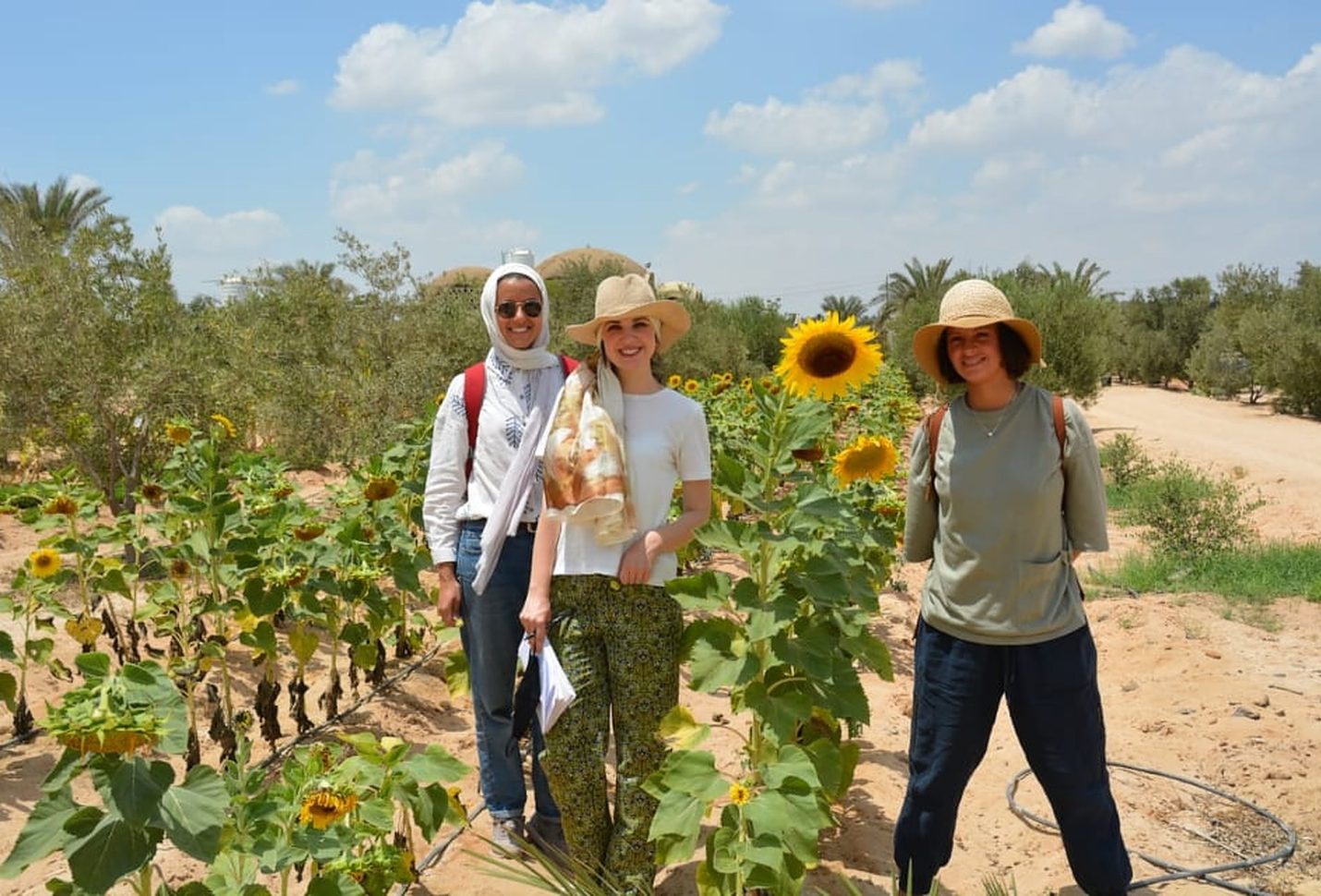
Water Conservation: 7 Simple Ways to Save Water at Home and in Your Business
Water is one of our most precious resources, yet it is often wasted without thought. ...

Agritourism has become a beacon of hope for Egypt to unlock immense potentials for achieving sustainability and empowering marginalized groups in Egypt.
Agritourism is a promising pathway towards sustainable tourism and economic growth in addition to its potential for benefiting local communities and rural livelihoods by diversifying income streams and empowering marginalized groups such as women, youth, and smallholder farmers.
Furthermore, the preservation of food heritage, especially through gastronomy, stands to enhance the food industry and its related value chains, including traditional handicrafts. As Egypt strives to bolster its economic prosperity, agritourism emerges as a beacon of hope, not only contributing to the nation’s financial well-being but also signaling a shift towards embracing sustainable tourism practices among various actors.
The Egyptian government is gearing up to expand its agritourism projects as part of its strategy to diversify the tourism sector. In tandem with these efforts, The United Nations Development Program in Egypt (UNDP-Egypt) has curated a portfolio of “Sustainable Tourism Offer.”
Leveraging the UNDP’s collaborative efforts with the Egyptian Agricultural Research Center, it is scaling up its initiatives by initiating new projects. To validate and enhance its approach, the UNDP has recently organized workshops focused on agritourism insights, in partnership with the Ministry of International Cooperation. These workshops were followed by additional events during COP28, aimed at further refining our strategies and fostering meaningful partnerships.
During the scaling-up workshops facilitated by UNDP, a groundbreaking concept and acronym, “Nexus for Environment, Agriculture, and Tourism (NEAT),” was introduced. This term was exclusively coined to emphasize the crucial connection between environmental sustainability, agricultural practices, and tourism development. Attended by key stakeholders including the Ministries of International Cooperation, Agriculture, Tourism, and Environment, the workshops highlighted the necessity of aligning policies and agendas to promote sustainable agritourism in Egypt.
NEAT addresses the prevalent confusion between terms like ecotourism, rural tourism, and sustainable tourism, which are often used interchangeably. As a preliminary definition, NEAT encompasses “the experience of engaging in agritourism and farm-related activities while immersing oneself in rural life and surrounding ecology.” Furthermore, NEAT emphasizes adherence to sustainable tourism standards and regulations, ensuring that tourism activities have a positive impact on the environment while promoting local livelihoods and cultural heritage.
As a successful outcome and drawing from insights obtained through the Accelerator Lab’s research, UNDP Egypt has signed an agreement with Knowledge Economy Foundation (KEF) during COP28 to collaborate on designing and implementing an agrotourism component for KEF’s project, that aims at promoting sustainable economic activities and social alternatives in Luxor and Aswan, with a focus on women and youth.
The UNDP has discovered that agritourism holds significant potential to drive social, economic, political, and cultural change. It engaged with over 40 stakeholders from the Delta region and more than 20 from Cairo, including farmers, businesses, and governmental institutions. By engaging in foresight activities, it identified challenges and proposed solutions, particularly focusing on small farmers and women in agriculture.
Through exploration, the UNDP found that agritourism can help create resilient livelihoods, especially benefiting vulnerable populations like women and youth, while also promoting climate-smart agricultural practices that preserve biodiversity. Additionally, agritourism has the potential to break down market barriers hindering local farmers’ access to funding and customers, while also reshaping tourists’ expectations and desires when visiting Egypt.
Foresight or future thinking has proven to be a powerful tool for raising awareness, even within rural communities. The concept of “Reframing” has been particularly helpful in encouraging imaginative thinking by breaking away from old ways of thinking. For instance, during the UNDP AccLAB Foresight Thinking Workshop with various agricultural stakeholders, participants generated imaginary headlines from the year 2050. Foresight participants noted the role of technology in shaping the future, envisioning the domination of virtual reality (VR) by 2050. This could allow, for example, tourists to remotely visit agricultural festivals and farm activities. Moreover, foresight participants expected that as physical jobs become less available, agritourism could create job opportunities, especially for youth as tour guides and in developing applications and software.
Building on this exploration, the UNDP has found that achieving successful wide-scale intervention of agritourism in Egypt’s system requires significant changes to both the agriculture and tourism sectors.
This includes creating a culturally supportive environment that encourages adaptive and sustainable practices at different levels, from local communities to markets to civil society and agricultural cooperatives. Changing behavior, practices, and choices is crucial and requires operational guidance, with educational institutions integrating agriculture and tourism into their curricula.
Providing market access opportunities and tailored financial incentives could incentivize participation in agritourism. Additionally, Egypt has untapped potential in certain areas for agritourism, necessitating comprehensive planning, marketing strategies, and location-based community needs assessments.
By embracing innovative approaches and addressing systemic challenges, Egypt can unlock the full potential of agritourism while ensuring sustainability and inclusivity for all, leaving no one behind.
اترك تعليقا